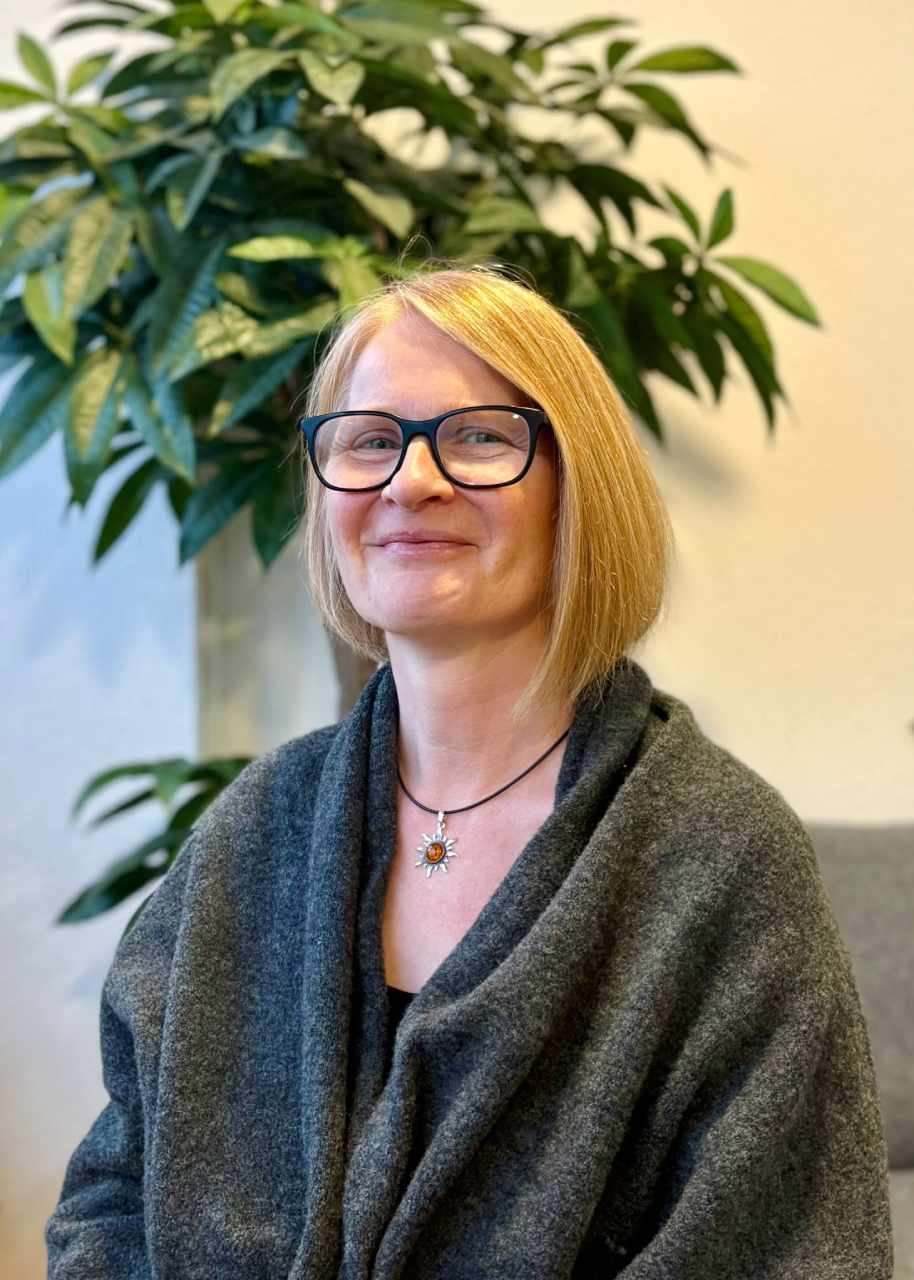Growing Together as a Family
Family life is fulfilling, but also challenging. Conflicts, misunderstandings, or stressful life events can disrupt the family balance and strain relationships. Often, the necessary tools to interact constructively and find solutions are lacking. Resources or skills to regulate one’s own emotions are also frequently missing, which can ultimately affect the entire family situation when internal tensions escalate. Family therapy offers support to improve communication and connection, develop understanding for each other and for oneself, and strengthen the bond between all family members.
Do you have questions about
Family Therapy?
If you have any questions, feel free to call us or send us an email. We will be happy to advise you in a free initial consultation.
Our Services and Therapeutic Approaches
In our practice, we offer professional family counseling and therapy. Our trained and highly experienced couples and family therapists are available to you at our location in Cologne’s Südstadt. When scheduling appointments, we tailor the process to your individual needs: sessions can be arranged in the mornings, afternoons, and evenings, as well as on weekends.
Our approach is as diverse as families themselves:
What is Family Therapy?
Family therapy views families as a complex “system” shaped by the everyday situational conditions. This system is dynamic and adapts to changes that influence family life. These include significant events such as the birth of a child, a move, marital conflicts, illnesses, or the loss of a family member. Also included are transitions like a child starting school, difficulties in the school career, puberty, or the process of “separating” from the parents or “letting go” of the children. These examples illustrate that even natural processes in family development sometimes require support.
Such examples show that natural developments within a family may also need assistance. One of the basic requirements for a harmonious family system is a respectful relationship between the parents. Parents should agree on parenting matters and ideally share similar values and beliefs or find common ground to avoid conflicts and uncertainty. However, differing views on topics like rules, rituals, or media use can lead to tensions and dysfunctional coalitions between parents and children in parenting.

Experience shows that especially differing views on child-rearing between parents can lead to major crises in the partnership. A father shares in counseling: “Our discussions rarely focus on us as a couple; instead, they mostly revolve around how we raise our children. Often, it’s about whether and how much sweets we allow the children, how many hours of TV per day are acceptable, or how the morning or evening routines should be structured.” In the worst case, inconsistent rules from the mother and father result, which ultimately causes the most harm to the child. The lack of clear guidance and consistent rules
often lead to uncertainty, confusion, frustration, and an indignant “But at Dad’s, I’m allowed to…” The end result is frequently another conflict between the parents, with accusations like, “You’re stabbing me in the back just to look good in front of our child!”
From the perspective of systemic family therapy, blame for family unrest is never assigned to just one person within the family structure. Instead, the entire family system, including its subsystems and the interactions between members, is considered. Families often come to therapy with the assumption that there is a “troublemaker” causing and maintaining the problem in the current situation. However, this focus on one family member is questioned in therapy and shifted away from identifying a single “culprit.” Instead, the focus moves to examining problematic behavioral and communication patterns within the family as a whole.
A fitting analogy for the family is the image of a mobile: just as the individual parts of a mobile are connected by strings, so too are family members connected. When one part moves, the others are set in motion as well. Conflicts affect all members, which is why it makes sense to involve the entire family in the process of change. The goal is to restore balance that has been disturbed by conflicts, uncertainties, or stressful events.
From the above, it should be clear that every symptom of a system – whether quarrels or behavioral issues – is significant and should be seen as an expression of the forces at work within it. Quarrels and conflicts are clear signs of an imbalance in the system. This imbalance may affect one family member more than another, leading to behavioral problems in that individual. If the “symptom bearer,” i.e., the person exhibiting problematic behavior, were to be treated only through individual therapy for what is ultimately a family issue, the results would likely not be long-lasting. This is because the underlying dysfunctional patterns within the family remain and make it difficult for the individual to change their behavior. Therefore, at Couples Counseling Cologne, great emphasis is placed on a holistic approach that involves all parties in the process. This method has proven to be particularly effective in achieving sustainable and lasting changes within the family system.
Make use of the safe space of
Family Therapy
Whether it’s about coping with crises, clarifying parenting questions, or strengthening family bonds – we support families in overcoming challenges and creating a happy and fulfilling future together. Whether you need help with communication, managing conflicts, or reinforcing your family connections – we are here to assist your family on the path to a harmonious and loving relationship. Schedule a free, non-binding initial consultation now.
When is family therapy indicated?
Systemic family therapy can be the treatment of choice for a wide range of issues. The common denominator is that the disorders being treated can be traced back to relationship structures. This is based on the assumption of the systemic approach that dysfunctional relationship patterns within the family can trigger and maintain psychological symptoms in an individual family member. Originally, family therapy was developed and used to counsel families where the mental illness of one member negatively affected the family climate. Over time, this approach has also proven effective in addressing a variety of other family concerns as well as in the context of team dynamics at the workplace.
Puberty – A Challenging Time for the Whole Family
The period of puberty often puts the entire family to the test. It is not only the life of the adolescent that changes significantly, but the entire family system is affected by these changes. During this important phase of their lives, adolescents strive for autonomy and test their boundaries. Adolescence presents a major challenge in identity development. In such cases, family therapy aims to ensure that the steps toward adulthood are not further complicated by conflicts within the family but are instead accompanied and supported by the parents as much as possible.
Examples of Other Indications
Every family experiences crises at some point in its development. These conflicts can vary widely depending on the family, so it is not possible to provide a complete list of examples. The following are some examples of issues that can be addressed in family therapy: parenting difficulties, alcohol and drug abuse, domestic violence, consequences of unemployment, behavioral problems in children such as school anxiety or truancy, ADHD, bedwetting, or eating disorders.
Divorce, Loss, and Grief
Major upheavals and consequences can be triggered by issues of separation and loss within families. Examples include marital conflicts, parental separation, and the loss of a family member due to relocation, an accident, or illness.
Conflicts between parents affect the entire family structure and bring tension with them. Our family therapists are also trained in couples therapy, allowing them to offer counseling to you as a couple individually, as well as within the family setting. A concerned mother shares from this situation: “I was very worried about how my children would react to our divorce. Although my husband and I argued frequently, they didn’t see the divorce coming. The therapist encouraged us in therapy to openly express our thoughts, disappointments, and wishes, so we could find a way together to navigate the new situation.” Open communication is especially essential during this phase, as it helps develop understanding for one another, clears up misunderstandings, and dispels irrational fears and concerns. Children often feel torn between two worlds during their parents’ divorce process. Family therapy aims to prevent this by ensuring that parents convey a sense of security, reassuring the children that both mother and father will continue to be there unconditionally.
The Process, Techniques & Interventions of Family Therapy
Many people wonder how family therapy works. A father who came to us due to increasing conflicts in his blended family initially expressed doubts: “At first, I had serious doubts that family therapy would be the solution. After all, we had already sat around the table as a family several times trying to find a solution together. Unfortunately, these attempts often ended in arguments and only worsened the situation.”
In systemic therapy, however, the dialogue does not take place in such a stressful and problem-focused way. Instead, the focus is deliberately placed on possible solutions. The therapist acts as an impartial “catalyst” for the family and supports them in discovering their resources and promoting positive change. Rather than asking, “What is going wrong?” the question becomes,

“What is working well, and how can it be improved further?” This perspective creates a new orientation that gives the family room to act and makes the situation seem a little less “stuck.”
In the first sessions, the goal is to understand the core conflict and formulate common therapy goals. Expectations and concerns are discussed, and you get to know the therapist’s working methods. You will also receive practical information about the framework of the therapy, such as appointment scheduling, session duration, involving and inviting other family members, costs, and more.
The techniques of systemic therapy are used by the therapist to disrupt entrenched thinking and behavior patterns and to initiate changes in the system. An important intervention in systemic therapy is reframing – the process of interpreting the problem in a new way to create a fresh perspective and more room for action. Humor is often involved in this technique as well.
Additionally, specific questioning techniques are often used to promote a shift in thinking. These frequently involve hypothetical, goal- and solution-oriented questions, such as the miracle question: “If miracles happened overnight, but you didn’t notice it while you were asleep, how would you recognize in the morning that a miracle had occurred?” This approach is based on the idea that simply imagining a positive change is the first step toward solving the problem. Another questioning technique is circular questioning. Here, a family member is asked what they think another member of the system’s perspective on a situation might be. Circular questioning fosters understanding of others and creates sensitivity to different viewpoints.
These and other interventions in family therapy can help you restore a state of balance within your family where all members feel comfortable. With the motto “help for self-help,” the ultimate goal of family therapy is to enable the family to help themselves and manage changes independently in the event of future conflicts.
Costs and Process of Family Therapy
- Initial Consultation: €195 per 90 minutes (excl. VAT)
- All subsequent sessions: €225 per 90 minutes (excl. VAT)
The duration of family therapy depends on the individual case – fruitful results can often become clearly visible after just a few sessions. In our experience, most families require 6 to 8 sessions.
Our Family Therapists
In couples counseling in Cologne, you will be supported by an experienced team with empathy and professional expertise. Our therapists encourage constructive conversations, help you develop new perspectives, and assist you in finding sustainable solutions for your family.
FAQs
Appointments can be scheduled in the mornings, afternoons, and evenings, as well as on weekends.
Family therapy supports families during transitional periods such as separation or divorce by helping to understand and mitigate the impact on all family members. Support for children is especially important, as they often struggle to cope with the changed family situation. Therapy promotes communication and helps establish a new, healthy family structure.
Puberty is a challenging phase for both parents and children. Family therapy provides a safe space to break down communication barriers and find ways to better handle the conflicts and emotional challenges of adolescence. The goal is to strengthen trust and the relationship between parents and teenagers and to prevent growing emotional distance.
Yes, family therapy can be especially helpful for patchwork families to clarify the often complex relationships and dynamics. It helps resolve conflicts, foster connections with all family members, and create a harmonious family structure where everyone, both parents and children, feels safe and respected.
Different parenting views can lead to conflicts. In family therapy, these differences can be openly discussed, and shared parenting goals can be developed. The therapy helps promote respectful communication and find compromises that are beneficial for both partners and the child.
Balancing privacy and family time can be challenging, especially when life as parents becomes stressful. Family therapy can help develop effective time management strategies that meet the needs of both parents and children while creating space for relaxation and individual needs.
In families with new partnerships or transitions, such as remarriage, family therapy can help children feel secure and accept their new role. The therapy provides strategies to develop new relationships within the family and promote emotional stability.
Many of our clients feel a positive change after the first session. Together, we create a space in which your individual issues are addressed in a targeted manner so that you can quickly experience initial success.
Do you have questions about
Family Therapy?
If you have any questions, feel free to call us or send us an email. We will be happy to advise you in a free initial consultation.




